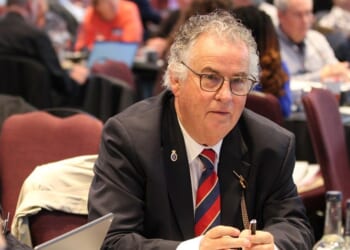FAITH communities in Wales are providing at least £250 million to the Welsh economy each year through wider community initiatives and volunteering, a study by the Evangelical Alliance (EA) says.
Its report, Faith in Wales, updating a 2008 version, says that, although faith communities have shrunk in the mean time, volunteers have proliferated — suggesting that remaining members of congregations are more socially engaged. There were 201 participant faith communities in the survey.
In the past 17 years, the economic contribution of faith communities in Wales has grown by 49 per cent, the data suggest.
In the censuses from 2011-21, the number of people who identified as Christian in Wales fell by 14 per cent, and those of no religion rose by 14.5 per cent.
Danny Webster, the EA’s director of advocacy, who wrote the report, said: “The key change between 2008 when the original Faith in Wales research was published and now is that more people are volunteering per faith community, in fact about twice as many per faith community. The approximate amount that each volunteer volunteers is about the same, at just under two hours per week.”
The mean number of volunteers per place of worship was 22, and the median was 15, showing that some faith groups were seeing larger numbers of volunteers supporting the community each week, he said.
Ninety-seven per cent of faith communities were involved in some form of social action, ranging from family activities, support for the elderly, social activities, green initiatives, refugee support, rehabilitation for prisons, and crime prevention. More than half of all the faith communities ran a foodbank. The support offered by churches and other faiths reached far beyond the faith community into wider society, the report said.
The £250-million estimated value of faith communities’ contribution to society excludes the value of faith tourism, but includes the employment offered by churches and other faith groups, the hours offered in community work by church volunteers, and the provision of church and other faith buildings for community use.
The study concludes: “The total economic contribution to the Welsh economy, estimated at £250 million, is significantly higher than the Welsh government’s social justice budget of £159 million. This highlights the valuable and significant work that faith communities do in service of their local communities.”
Faiths group also told the EA that they could, and would like, to offer more community services to meet increased need, through partnership with public services and with better access to funding.
The Welsh Assembly’s Cabinet Secretary for Social Justice, Jane Hutt, welcomed the report. “Faith is important to so many people in Wales,” she said. “Our faith communities help their local areas in many ways, promoting equality, social inclusion and community cohesion. As a government, we value the input from our faith communities, as part of a range of perspectives which are crucial to policy development.”

















